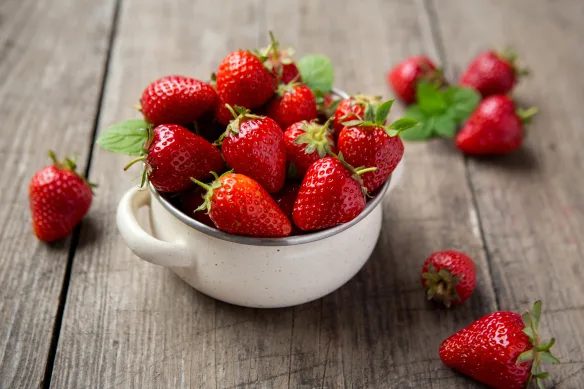Strawberries eaten in middle age can protect against cognitive decline and depression later on, according to a new randomized, controlled study The study involved middle-aged people with overweight and insulin resistance who described themselves as experiencing mild cognitive decline.
The study’s authors suggest that anthocyanins, bioactive compounds in strawberries, blueberries, and other berries, may be the neuroprotective agent at work.
While endorsing strawberries as a healthy food, a neurologist was skeptical of the study’s findings.
Middle-aged adults with overweight and insulin resistance who consumed strawberries for 12 weeks reported a reduction in memory interference and depression, according to a new study.
With cognitive disorders, such as Alzheimer’s disease, developing slowly over a period of years beginning in midlife, the study’s authors investigated a dietary change that may slow the progression of dementias and may increase mood. The study focuses on anthocyanins, a nutritional compound strawberries contain. Previous researchTrusted Source on blueberries — which also contain anthocyanins — by the study’s lead author suggested that the compound improved executive brain function.
The current study was a small randomized, double-blind, placebo-controlled trial. Five men and 25 women participated. They were split into two groups: one that consumed strawberries and one that received a placebo.
The researchers assessed individuals’ neurocognitive health and mood before the start of the 12-week trial.
During the trial, the experimental group was instructed to consume one packet of powder mixed with liquid, prepared from whole strawberries desiccated, freeze-dried, and milled. The strawberry packet contained the equivalent of one cup of whole fresh strawberries, established as a standard serving by the California Strawberry Commission, which funded the study.
The researchers formulated the placebo to have the same taste, appearance, and carbohydrate load as the strawberry powder. Neither group consumed other berries during the trial period to avoid influencing the study’s findings since other such fruits may have neuroprotective compounds of their own.









